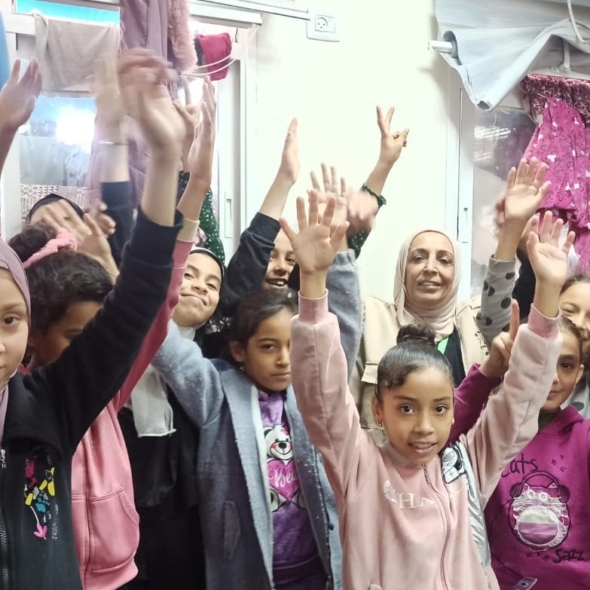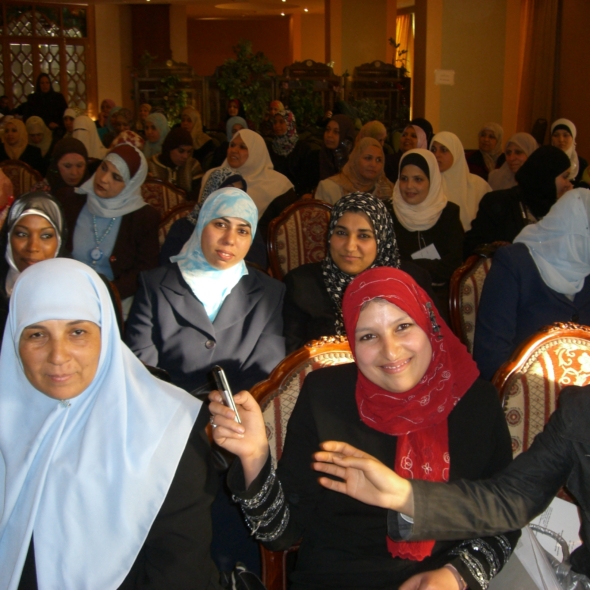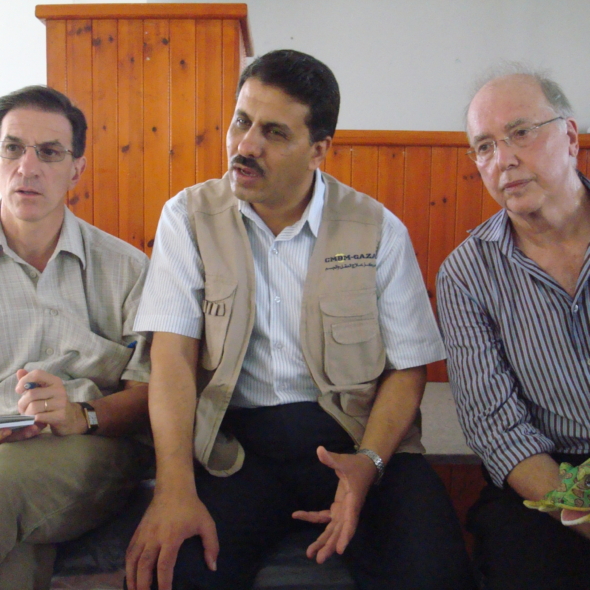Immediate Needs
Across Gaza, Palestinians are enduring unimaginable hardships and the loss of countless family members, friends and colleagues. According to the Gaza Ministry of Health, more than 38,000 people have been killed in Gaza since the beginning of the current war. Survivors and internally displaced people—90% of Gaza’s population—lack access to clean water, fuel, electricity, telecommunications systems, health and hygiene supplies. Dwindling food supplies, caused by an inability to deliver humanitarian aid, are leading to starvation and famine. The World Health Organization reports that dozens of children have already died of starvation, and estimates even more will suffer the same fate if circumstances do not change; Save the Children estimates that 21,000 children are unaccompanied or missing their family members.
Every day, refugee camp administrators, humanitarian aid providers, and other internally displaced people (IDPs) ask our team to extend our reach to northern and central Gaza, where tens of thousands of innocent civilians have been killed and infrastructure has been almost completely demolished.
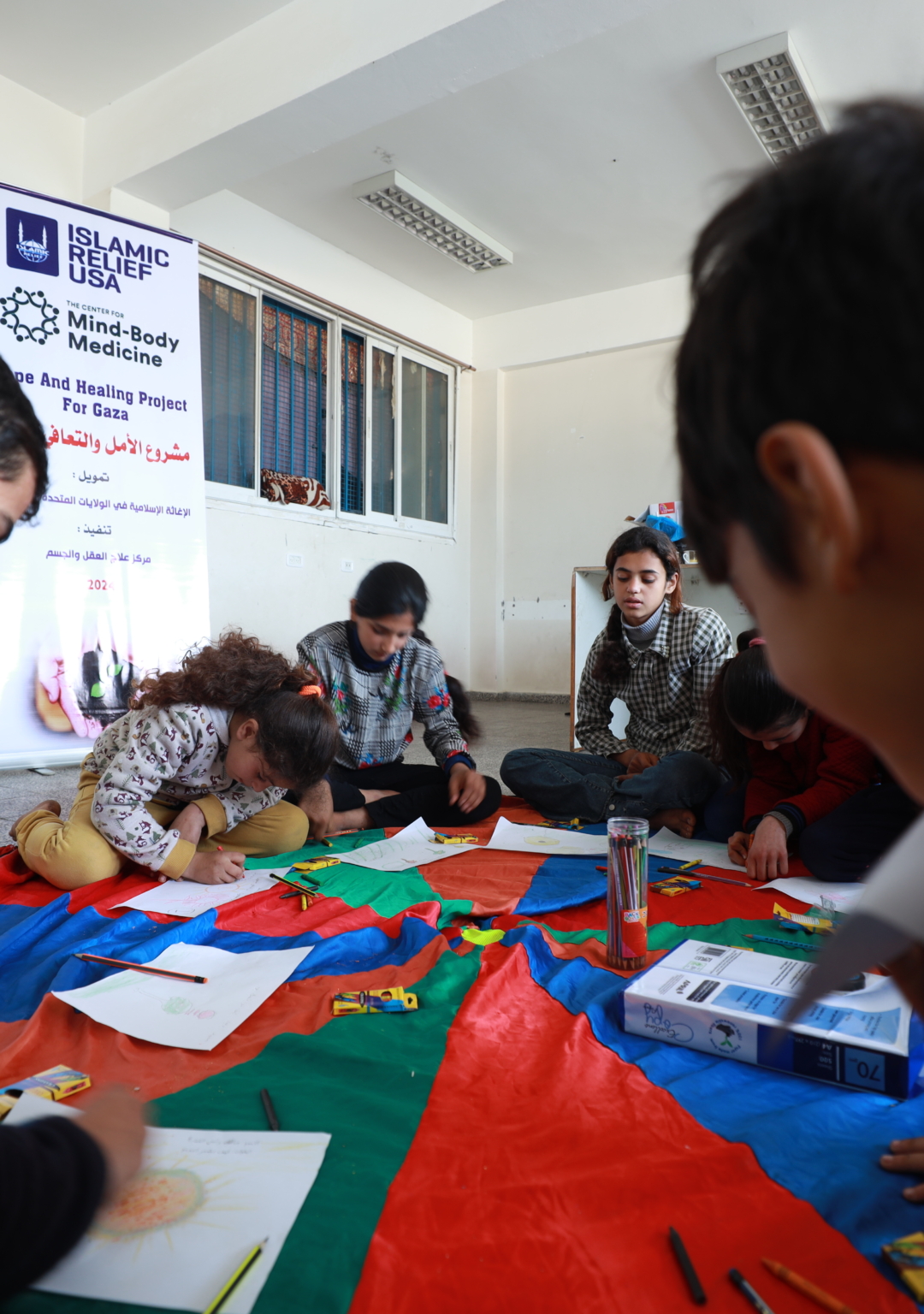
Support our work in Gaza
We need to expand our operations throughout all of Gaza to bring psychosocial support services to more people. With your generous support, we can expand our emergency relief work and meet the unprecedented need for trauma relief services in Gaza. The people of Gaza need your help. If you can, please give today.
Our work in Gaza
Our program in Gaza is one of the world’s largest, most effective and most culturally acceptable programs of trauma healing. Since 2005, our team of 25 faculty and staff have trained 1,500 Palestinian clinicians, educators, and leaders of women’s and other community groups in our model of psychological self-care and group support. These trainees have in turn brought our approach to more than 280,000 children and adults.
Having worked through five previous wars and periods of calm in-between, our team is well-prepared and equipped to provide mental health services in extremely dangerous circumstances. They leverage daily the expertise and trust they have built as mental health clinicians and healthcare providers in the region for almost two decades, and act as beacons of light in the midst of incredible darkness.
From the onset of the most recent war, our faculty and staff mobilized with great agility to meet the needs of Palestinians across the Gaza Strip. We currently provide essential psychosocial support services to IDPs across the Gaza Strip. In United Nations Relief and Works Agency (UNRWA) camps and shelters in Rafah and Khan Younis, we facilitate in-person trainings and workshops for children, teens, adults, and elders. We also train first responders from the Palestinian Red Crescent Society and UNRWA in our model of self-care and mutual support to treat and address their burnout. For those outside of this region, we’re using text and other messaging platforms to provide virtual support.
In all of this misery, pain, and darkness, we found a bright candle, a CMBM Facilitator, who taught us mind-body skills. These practices and the time together lit hope in my heart. They allowed me to feel some sense of satisfaction, gratitude, and peace.
Impact
Despite the innumerable challenges they face, the team has served an astonishing 131,385 people since the start of the war. As of June 2024, our heroic team has provided the following services:
- Emergency Mind-Body Self-Care Workshops for 87,429 children, teenagers, and adults, including first responders. Workshops provide participants with immediate trauma relief, and teach them how to use skills by themselves and with family and friends.
- Virtual crisis support (SMS/text messages and guided practices) for 35,857 people.
- Mind-Body Skills Groups (MBSGs) for 5,538 of the most traumatized children, teenagers, and adults, including first responders. Following our emergency response protocol, we modified our usual MBSG cadence, and met with increased frequency over a shorter period.
- Individual counseling sessions and screenings for 1,065 people.
- Recreational activities for 1,496 children and teenagers that reduce stress and support psychological well-being.
Through participation in these activities, Palestinians of all ages have learned practical, evidence-based mind-body techniques for self-care: meditation and mindfulness, guided imagery, autogenics, and expressive writing, drawing, and movement. We create space for them to share their personal experiences in a confidential setting and create communion with their neighbors who are experiencing similar thoughts and feelings.
CMBM x Islamic Relief USA | Gaza Testimonial 1
CMBM x Islamic Relief USA | Gaza Testimonial 2
CMBM x Islamic Relief USA | Gaza Testimonial 3
Research
Though operating in suboptimal conditions for research, between October 18 and December 18, 2023, our team surveyed 100 children, 100 teenagers, and 200 adults before and after training. We recorded dramatic improvements in the number of participants who qualified for PTSD, depression diagnoses, and other psychological issues:
- 60% reduction in the number of children who qualified as having Post-Traumatic Stress Disorder after completing Mind-Body Skills Groups.
- 88% reduction in the number of teenagers who qualified as having Post-Traumatic Stress Disorder after completing Mind-Body Skills Groups.
- 56% reduction in the number of adults who qualified as having Post-Traumatic Stress Disorder after completing Mind-Body Skills Groups.
- After the groups, 47% of the adults had normal to mild levels of depression, and only 5% were in the very severe range. Stress levels also greatly decreased: 83% were in the very severe range before the groups; afterward, 67% were in the normal to mild range.
My nervousness and stress levels have decreased a lot thanks to the CMBM facilitator who taught me the mind-body skills. They are like a medicine and cure for the fear and panic we suffer from.
Given the sheer scale of ongoing trauma that Gaza’s entire population is currently experiencing, these results are extraordinary. They offer us a glimpse into what’s possible if we scale our work.
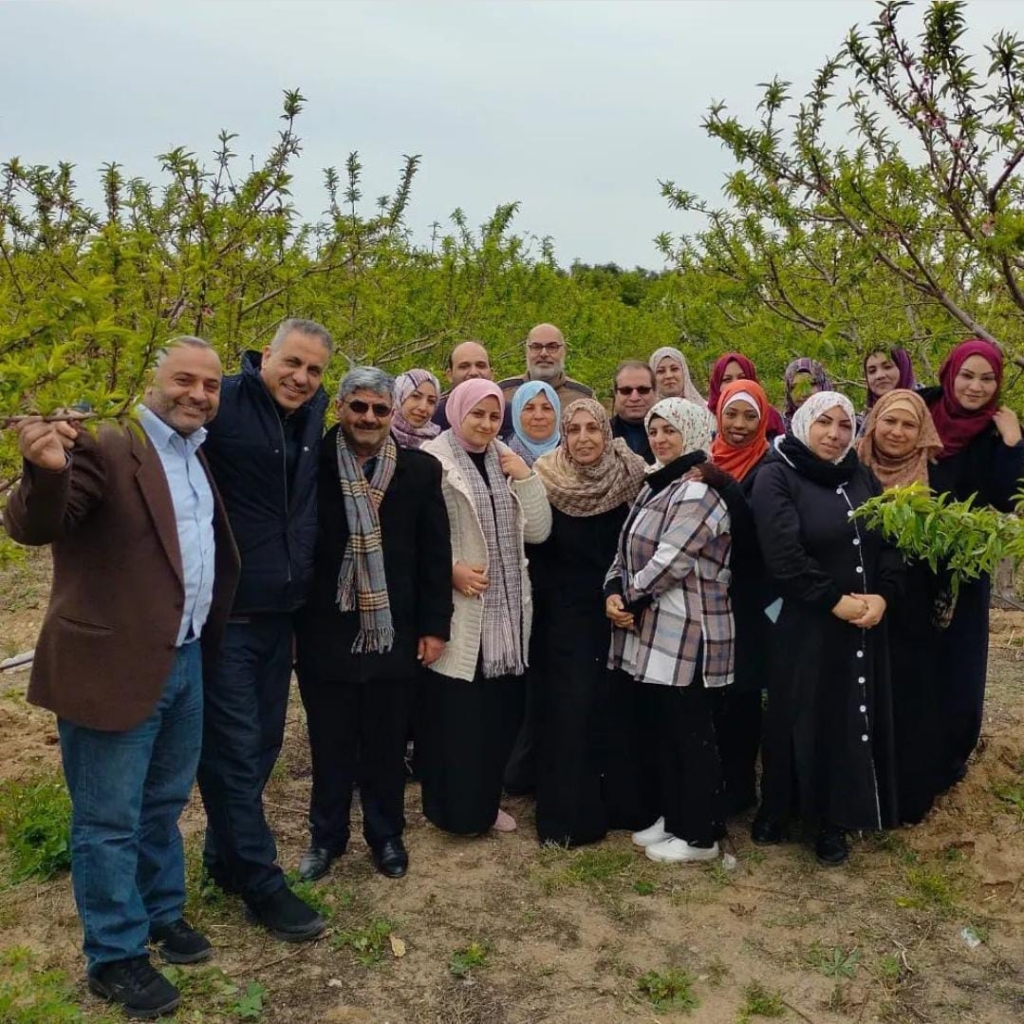
Honoring our Faculty
We are deeply grateful for the sacrifices our CMBM-Gaza team make every day to continue providing these essential services to displaced people across Gaza. We honor the Faculty who are no longer with us—Shaher Yaghi and his daughter Sumaia—both killed in their home, alongside 20 family members, during a bombing in Jabalia. Shaher was an enormously gifted and compassionate clinician who coordinated UN programming for special needs children and was a revered member of our Faculty for 17 years. Sumaia held incredible promise as a young psychologist, and worked alongside her father and the CMBM-Gaza team for 5 years.
We also honor our faculty and staff who have lost so much over the course of this war. Country Director Dr. Atti has lost two sisters and dozens other family members, as have the rest of our faculty and staff. The pain and suffering this team is experiencing is unimaginable, and we are deeply grateful for and inspired by their continued commitment to helping others find hope and healing.
We managed to escape the tremendous bombing, with war planes, death, and destruction all around us. We reached Rafah, to a place called a shelter that has no water, no electricity, no pillows, no mattresses. We did find a wonderful CMBM facilitator, though. They taught us mind-body skills that restored some hope and clarity.
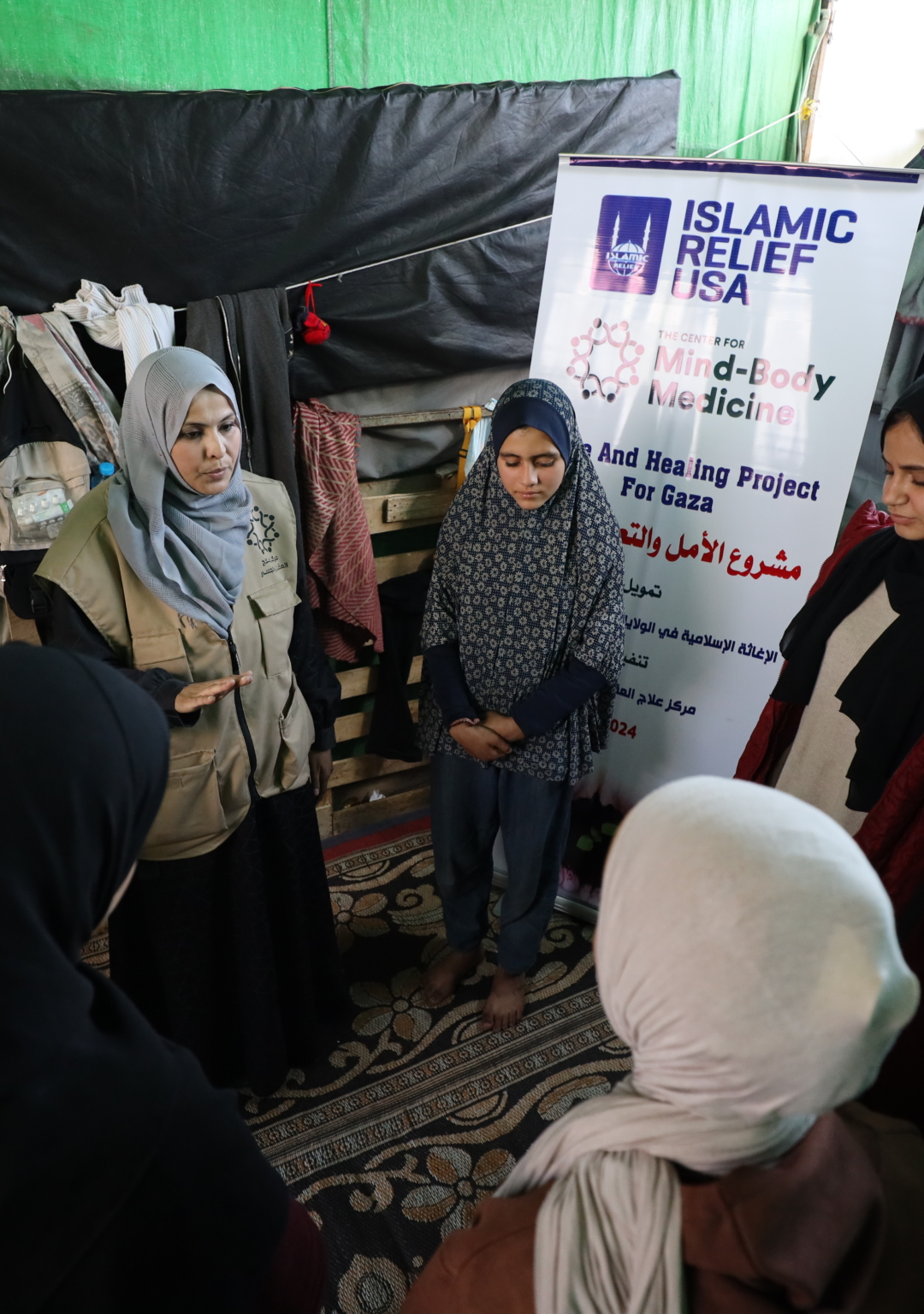
Support Our Work in Gaza
With your generous support, we will significantly expand our program to meet the needs of tens of thousands of deeply traumatized, internally displaced Palestinians throughout all of Gaza.
Our Work in Action
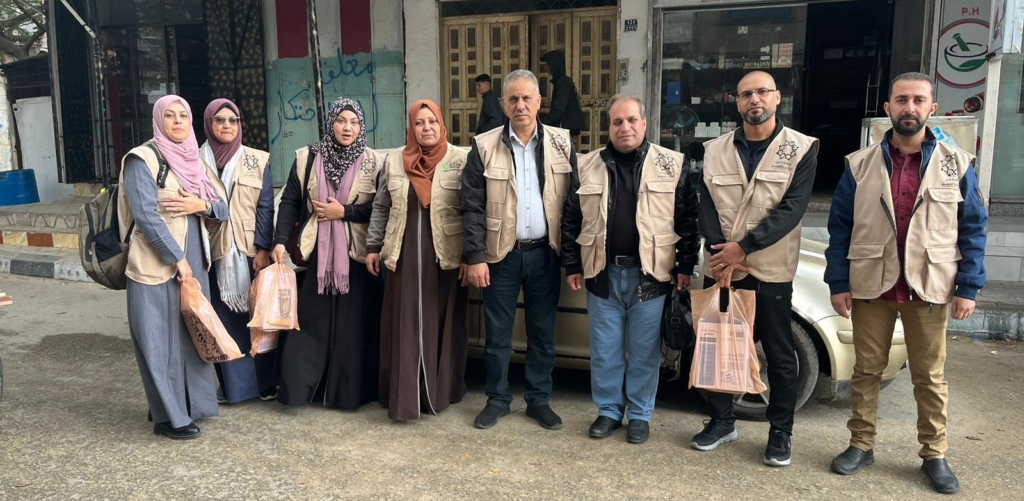
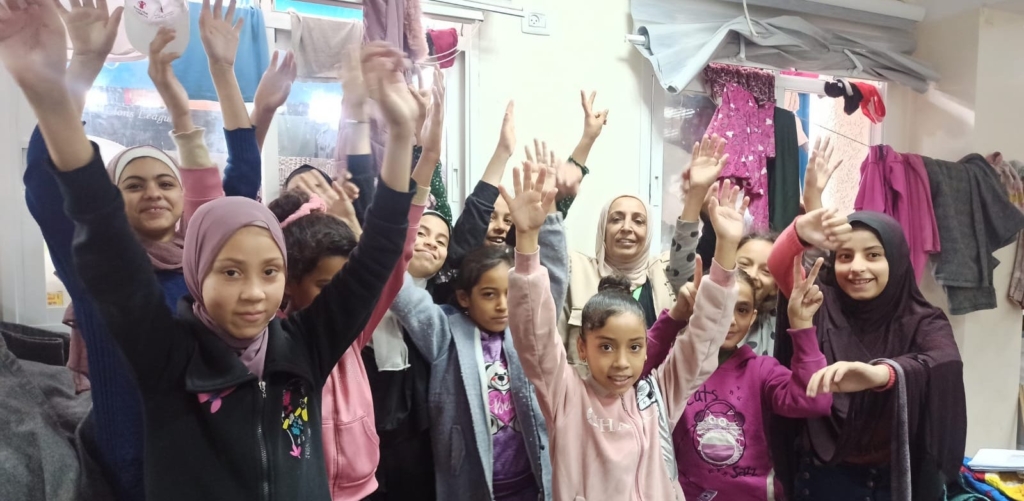
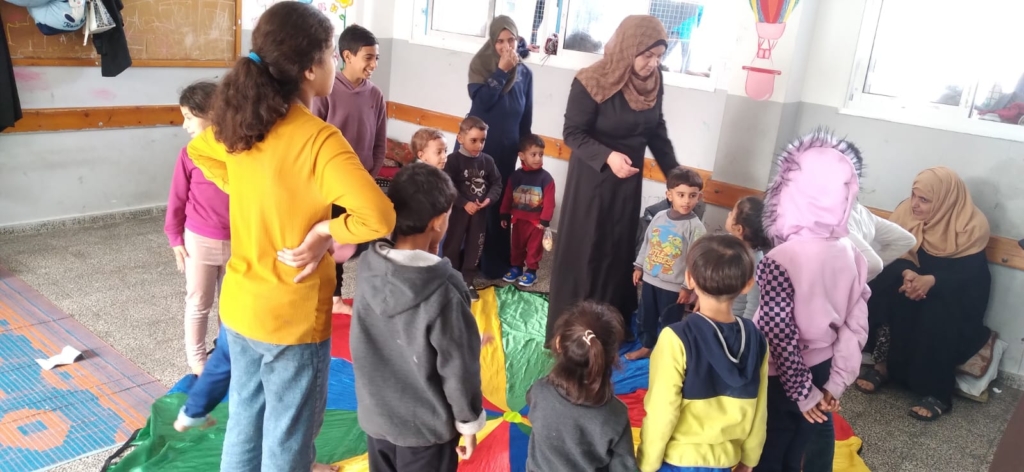
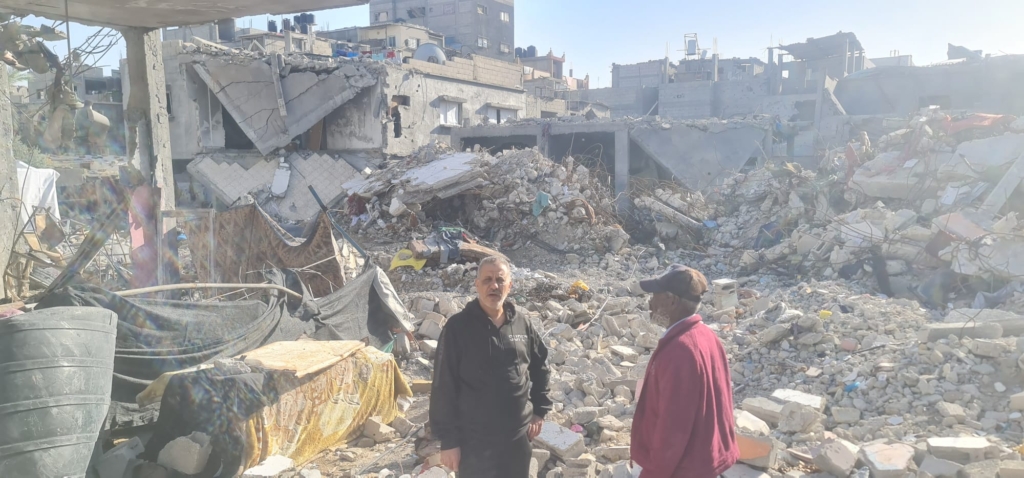
“The Lesson of War,” CBS 60 Minutes (5/3/2015)
Finding Hope in the Face of Another: Trauma Relief in Gaza
CMBM-Gaza in the Press
Bringing Hope and Healing
“[After] five sessions of self-care and mutual help… 90% of the teenagers and more than 60% of the children were free of their most disabling symptoms, and no longer qualified for a PTSD diagnosis.” Read more.
Stressed Gazans Turn to Meditation After War
“‘We are teaching very simple tools of self-care,’ said Dr. James S. Gordon, a psychiatrist who runs The Center for Mind-Body Medicine in Washington, D.C., and offers a parallel trauma program in Israel.” Read more.
Finding a Steadier Path in Gaza
“‘We try to look to the light, to the hope,’ said Jamil Abdel Atti, who heads [The Center for Mind-Body Medicine] in Gaza. ‘We say, ‘Take off those dark glasses.’” Read more.
